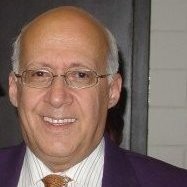Medical providers who treat injured workers in Kentucky must bill the employer/insurer within 45 days, even before a workers’ compensation claim has been filed and before an employer’s liability has been established, the Kentucky Supreme Court decided this week.
The opinion in Farley vs. P&P Construction overturns nearly 30 years of precedent and could make it more difficult for doctors to get reimbursed and for workers to be treated, one attorney in the case said.
“This is unfair to doctors and it’s unfair to workers,” said Eric Lamb, counsel for the Kentucky Workers’ Association, who filed a friend-of-the-court brief in the case.
He said that courts through the years have taken a lenient approach on the 45-day billing rule, recognizing that some medical providers may not be aware that an injury is work-related and may not bill correctly. Insurance carriers, by contrast, can wait until after a claim has been adjudicated to pay medical bills.
The insurer in the case, Kentucky Employers Mutual Insurance (known as KEMI), the largest comp carrier in the state, said the Aug. 24 ruling simply interprets state comp law as it is written.
“It’s pretty straightforward. The court said the law is clear and unambiguous,” said Robert Swisher, an attorney and former commissioner of the Kentucky Department of Workers’ Claims, now director of claims-legal for KEMI.

The statute requiring invoices to be submitted within 45 days allows insurers to know the costs incurred after a work accident and encourages timely administration of claims, Swisher said.
The case began in 2017, when Daniel Farley was working as a foreman for P&P Construction. An air hose for a mine pump exploded and broke his leg. He needed three surgeries to repair the fractures, the court explained.
KEMI accepted one of his claims and began paying temporary total disability benefits and some of Farley’s medical expenses. In all, the medical bills would top $107,000.
Several months later, Farley was treated for post-traumatic stress disorder. The clinic did not submit bills for the treatment sessions until seven months later and KEMI declined to pay, citing the 45-day rule. The carrier did the same for invoices from an imaging services firm, after bills came in three months late.
KEMI ultimately settled and paid a lump sum of $125,000 to Farley, but several medical bills remained outstanding. The worker also signed an agreement noting that medical providers must submit statements within 45 days of treatment and the insurer would not be responsible for paying late bills.

In 2020, an administrative law judge found that the 45-day rule did not apply until after an award is made in the claim, noting that the state’s Workers’ Compensation Board had consistently established that interpretation, as did a 1993 state Supreme Court decision. The administrative law judge in the Farley case was Peter Naake, of Louisville, a well-known claimants’ attorney who was appointed to the judge position in 2020.
KEMI’s appeal to the comp board was held in abeyance while the 2021 case known as Wonderfoil v. Russell was pending before the high court. After that opinion came down, the comp board upheld the ALJ, citing the Wonderfoil decision. That Wonderfoil case, however, addressed only unpaid medical bills submitted by claimants, not medical providers. And KEMI and P&P Construction argued that the ALJ and the compensation board had misunderstood the law on when the 45-day rule applies.
The Court of Appeals agreed with the employer/carrier.
“We hold that the Board misconstrued the controlling statute and precedent and therefore erred as a matter of law in holding that the 45-day requirement for providers to submit billing statements applied only post-award,” the appellate judges wrote.
“The plain and mandatory language of the statute does not contain anything that limits the application of the 45-day rule to post-award situations,” the Court of Appeals concluded. “Therefore, we hold that this requirement applies both pre- and post-award.”
The Supreme Court upheld the appeals court and made it clear why.

“In holding that a provider has 45 days from the date of an award to deliver its billings to an employer, the (Workers’ Compensation) Board has impermissibly rewritten an unambiguous statutory provision,” reads the Farley opinion, written by Justice Kelly Thompson. “The mandate to providers is unmistakable in its clarity. The plain and forthright language of the statute affords no other construction but that the provider ‘shall’ submit the statement for services within forty-five days of the day treatment.”
Lamb, of the Kentucky Workers’ Association, said that courts have historically refrained from drawing a bright line under the word ‘shall’ as written in some statutes, thus allowing for practical applications of the law. He offered this scenario: Say an injured worker is unconscious and no one informs the emergency room that the injury is from a work accident. In other cases, a pre-existing condition may complicate things.
“It has been held that medical causation is a matter for the medical experts and, therefore, the claimant cannot be expected to have self-diagnosed the cause of the harmful change as being a gradual injury versus a specific traumatic event,” Lamb wrote in his brief, adding that the doctors or clinics may not know whom to bill until later. They will now be penalized and may avoid treating some injured workers, he said.
Swisher, of KEMI, countered that Kentucky comp regulations allow ALJs to make exceptions on the time limit, including when it’s shown that medical providers were not fully informed of the employer/carrier’s role in payment. “That provides an element of reasonableness,” Swisher said.
The high court remanded the Farley case to the Workers’ Compensation Board with instructions to reverse the ALJ’s decision. No justice dissented in the opinion.
Topics Workers' Compensation Kentucky
Was this article valuable?
Here are more articles you may enjoy.



 Fingerprints, Background Checks for Florida Insurance Execs, Directors, Stockholders?
Fingerprints, Background Checks for Florida Insurance Execs, Directors, Stockholders?  AIG Underwriting Income Up 48% in Q4 on North America Commercial
AIG Underwriting Income Up 48% in Q4 on North America Commercial  Insurance Issue Leaves Some Players Off World Baseball Classic Rosters
Insurance Issue Leaves Some Players Off World Baseball Classic Rosters  Portugal Deadly Floods Force Evacuations, Collapse Main Highway
Portugal Deadly Floods Force Evacuations, Collapse Main Highway 


